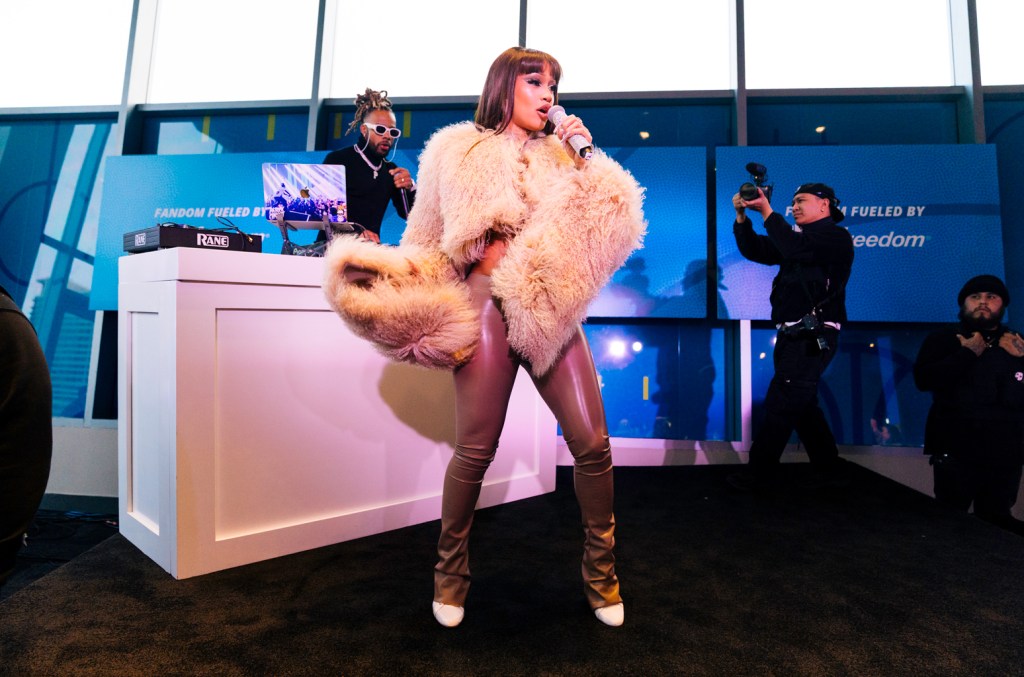Spotify is experiencing an incredible surge, nearly reaching a remarkable $100 billion market capitalization this week. Following the release of the company?s third-quarter earnings that revealed significant cost-cutting measures have resulted in record profitability, Spotify?s shares soared to an impressive all-time high of $489.69 on Thursday, November 14. This brief peak pushed its market cap above $98 billion. However, the stock experienced a minor setback on Friday, November 15, closing at $458.32, which brought its valuation down to $92.04 billion. Despite this decline, the stock was still up by an impressive 14.5%, although it marked a slight disappointment from its previous peak.
Throughout the peak of the pandemic, Spotify greatly benefitted from a surge in streaming stocks as consumers increasingly turned to audio and visual media while confined at home. Additionally, investors were drawn to Spotify?s strategic expansion into podcasts, which offered a lucrative opportunity to enhance the profit margins of its core music service. However, as time went on, investors became disenchanted with Spotify’s focus on growth over profitability, resulting in a dramatic decline in its share price from $387 in February 2021 to below $70 in November 2021. Fortunately, a renewed emphasis on cost-cutting, along with a foray into audiobooks, successfully rekindled investor interest; Spotify’s shares surged by 138% in 2023 and have already soared by 144% in 2024.
After delivering robust financial results and illustrating a clear pathway to enhanced profitability, Guggenheim has raised its price target for Spotify to $500 from $420. Furthermore, the firm increased its forecast for 2025 operating profit to 2.5 billion euros (approximately $2.63 billion) from a prior estimate of 2.1 billion euros (around $2.21 billion). Analysts pointed to management’s strong confidence in usage growth, their ability to implement price increases, and their strategies aimed at improving profit margins. Similarly, Morgan Stanley raised its price target for Spotify to $460 from $430, highlighting the company?s capacity to further increase prices and its management?s firm commitment to maintaining financial discipline and driving profitability. At JPMorgan, analysts boosted Spotify’s target to $530 from $425 for the same reasons and also noted the stock’s upcoming inclusion in the MSCI World Index scheduled for November 25.
A wide range of analysts have also revised their price targets for Live Nation following the company’s impressive earnings report on Monday, November 11, which revealed a record adjusted operating income for the third quarter. Notable revisions include Rosenblatt Securities raising their target to $146 from $123, Goldman Sachs increasing theirs to $148 from $132, Benchmark raising their target to $145 from $108, Evercore ISI increasing theirs to $150 from $110, Oppenheimer raising theirs to $155 from $120, and Wolfe Research increasing their target to $152 from $125. By the end of the week, Live Nation?s shares closed at $129.00, reflecting a gain of 4.9%, and they reached an impressive intraday high of $130.83 on Friday.
Spotify?s significant gain was the driving force behind the Billboard Global Music Index, which increased by 5.8% to 2,162.50, despite only six out of its 20 member stocks ending the week with positive returns. This float-adjusted, unweighted index measures the collective market values of the 20 member companies, with Spotify being the most valuable entity on the index?valued at more than twice that of the next highest company, Universal Music Group (UMG). The other five companies that posted gains during the week include some of the largest names in the industry: Live Nation, CTS Eventim, JYP Entertainment, HYBE, and SM Entertainment, each boasting market capitalizations exceeding $1 billion.
This week, the stock markets experienced a post-election hangover that tempered the gains witnessed following Donald Trump‘s victory in the presidential election on November 5. In the United States, the Nasdaq composite index fell by 3.1% while the S&P 500 dropped by 2.1%. Across the Atlantic, the United Kingdom?s FTSE 100 index lost a mere 0.1%. Meanwhile, in Asia, South Korea?s KOSPI composite index faced a significant decline of 5.6%, and China?s Shanghai Composite Index saw a decrease of 3.5%.
Despite the decline of the KOSPI, stocks related to K-pop have made a notable recovery during the second half of the year, now showing a collective year-to-date deficit of only 20.2%. All major players in the K-pop industry posted gains, with JYP Entertainment increasing by 8.2%, HYBE rising by 3.2%, SM Entertainment climbing by 2.8%, and YG Entertainment advancing by 2.7%. This upward trend highlights the resilience and enduring popularity of K-pop, which continues to engage audiences worldwide despite market fluctuations.
On the live entertainment front, shares of Sphere Entertainment Co. fell by 8.6% following their latest earnings report, which indicated a slowdown in revenue within its Sphere division. In response, Macquarie adjusted the company?s price target downwards to $45 from . Meanwhile, at MSG Entertainment (MSGE), shares dipped by 6.8%, closing at $40.00 after Bernstein revised its target for MSGE down to $44 from a previous estimate of $45.
In the radio sector, Cumulus Media saw a significant drop of 19.3%, landing at $0.71, following reports of layoffs at various stations in key cities such as Central Pennsylvania, Indianapolis, Detroit, and San Francisco. These layoffs are part of broader job cuts ahead of the holiday season, mirroring recent layoffs at its competitor iHeartRadio. Additionally, the music streaming service LiveOne experienced a decline of 12.4%, closing at $0.78 this week, highlighting ongoing challenges within the industry.

Billboard

Billboard

Billboard





